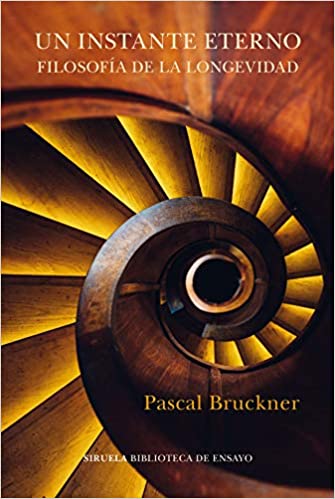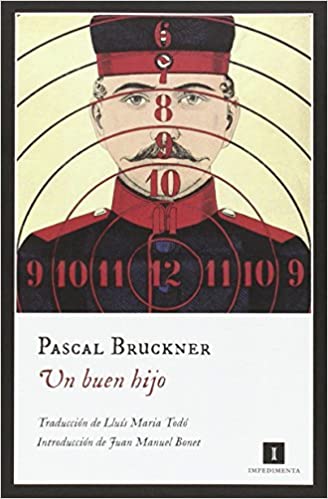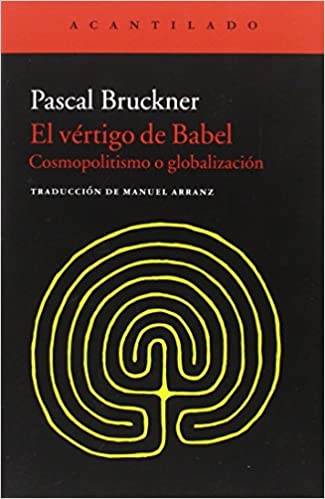When an author called Pascal bruckner manages to maintain emotionality and transcendence as a constant in novels, tests and philosophical works, it will be because something similar to excellence will be achieving in literature as a compendium of genres.
It is also true that lately the French narrative seems to enjoy genius as a guideline in authors such as Michel Houellebecq o Fred Vargas. But the case of Bruckner, as I say, is that strange way back and forth between fiction and non-fiction, between the taste for philosophical disclosure and the immersion in novel characters as an excuse to continue contributing his vision of the world.
Perhaps he is more striking for being one of those authors against the current in almost everything, more for being back after thoughtful analysis and synthesis of the state of things and human nature than for his own or supervening nihilism. And as is well known, everything that is done against the current ends up awakening us to become aware from estrangement and alienation or from the deepest deepening behind the layers of social domestication.
Top 3 recommended books by Pascar Bruckner
An eternal instant
If we deny death, we do no less with old age. Our last days are more or less fortunate within the physical decay according to the destination reached. But we never consider that impassable road to the last breath between sighs of abandonment, which have little of great theatricality but rather of the gasping of the fish out of the water ...
An intelligent, beautiful, exciting and raw essay that invites us to see differently that advanced age to which we all reach. A lucid essay on how advances in science have made time a paradoxical ally for human beings; Since the middle of the 20th century, life expectancy has increased from twenty to thirty years, equivalent to an entire existence in the 17th century.
It is when we reach the age of fifty that we experience a kind of suspension between maturity and old age, an interval in which the brevity of life really begins, as we ask ourselves the great questions of our human condition: do we want to live a long time? or intensely, start over or reinvent ourselves? How to avoid the fatigue of being, the melancholy of twilight, how to overcome the great joys and the great pains?
What is the force that keeps us afloat against bitterness or satiety? In this ambitious and essential work, Bruckner bases his reflections on statistics and on various sources from literature, the arts and history; Thus, he proposes a philosophy of longevity founded on resolution, and never resignation, to live this extra life in the best possible way.
A good son
Be a good son despite everything. Or at least try to do so from the contrasts of parental dictates and actions. Having overcome the most bitter contradictions seen in adults who protect us when we still know nothing about what there is, ultimately it could also have been an interested learning. Because in the end it is discovered that if it is legal to learn even from the enemy, how could it not be from a father.
This is the story of an impossible love. Love for a despicable individual. An authoritarian and womanizing fascist who is both a cultured man of strong convictions, and who happens to be the father of Bruckner himself. Such a filial conflict gives way to a wonderful training novel, personal and intellectual, of who is one of the most solid and controversial writers on the current panorama of French letters.
The adult son faces in the first person and without any type of narrative mask a character for whom he feels, at the same time, rejection and compassion, in a story that is born of hatred, but that acquires an unexpected and comforting tinge of tenderness. . Such a twist ends up surprising the narrator himself.
Bruckner cannot complete his particular condemnation of the father, and sees how the inspiring resentment at the beginning melts away to give way to a timid affection, not understanding, and the definitive certainty that it is not possible to judge the behavior of others in an absolute way. "A Good Son" is a crude educational novel in which Pascal Bruckner presents, through his own biography, a journey through the French culture of the second half of the XNUMXth century.
The vertigo of Babel
The philosopher is always ahead of his time, like the science fiction writer in search of the dystopia to come. Only, the feeling that whatever happens in history, despite the fact that there may be several timelines in which events happen differently, all uchrony leads to the same place due to the human condition itself. And there it does make sense that God exists, ready to judge us on the final judgment day, with the summary intention of undoing everything and condemning us to start over ...
Despite the time that has elapsed since its writing, this very fine essay by Pascal Bruckner on the errors of cosmopolitanism ?? globalization remains incredibly topical: «A titanic combat confronts two positions, as allergic to each other as capitalism to communism: the nationalist and xenophobic position, clinging to its heritage, and the cosmopolitan position, avid of the others and of exchanging the national narrowness for a broader clothing ».
In order to overcome the sterile confrontation of positions, the philosopher tries to think in the space of an uncultivated cosmopolitanism, in which the difference between cultures does not impede the relationship, nor does it annul the differences.



